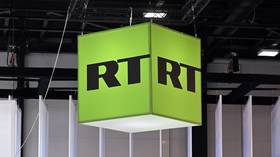Science magazine OKs computer-authored gibberish text

A scientific magazine published a paper generated by a computer programme which creates nonsense texts appearing to be serious research works.
A text ‘authored’ by the SCIgen computer programme was submitted for review and publication to a Kursk-based magazine, which accepted it.
The paper “Rooter: A Methodology for the Typical Unification of Access Points and Redundancy” was successfully used in 2005 to make fun of a computer-related conference.
A Russian newspaper that says its goal is fighting pseudoscience and red tape in science sent the fake paper to a magazine after machine-translating it into Russian. The magazine that is meant to publish works by Ph.D. candidates reviewed and accepted the gibberish text with minor style corrections.
“Having your paper published in this magazine, which printed our so-called scientific work, is enough to defend your Ph.D. thesis work,” pointed out Doctor Mikhail Gelfand, who was behind the prank.
He added the magazine was not the only one with ‘dubious editorial practices’ but he targeted it for being ‘outstanding when it comes to the stupidity of things they publish’.
The magazine’s chief editor Vladimir Ivanov told to RIA Novosti news agency the blame should fall on the institution that reviewed the “Rooter”.
“We paid for the review and got this embarrassing result. We won’t use this institute’s services any more. Their professional level is unacceptable,” Ivanov said.
However he didn’t reveal the name of the institute than failed him.
Meanwhile Gelfand warned he intends to run similar ‘tests’ on some other Russian scientific magazines.
The SCIgen programme was created by MIT’s Computer Science and Artificial Intelligence lab students. Its authors say it is useful to ‘auto-generate submissions to conferences that you suspect might have very low submission standards.’













